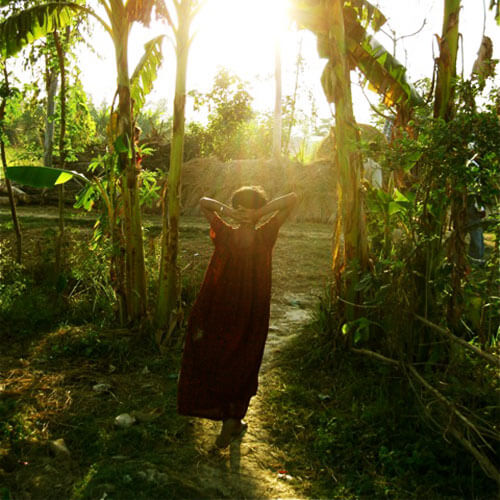A 14 year old indigenous girl raped, tortured and forced into labour.
FACTS

Ms. Fulmati Nyaya (pseudonym used) a 14-year-old girl belonging to the indigenous Tharu community of Nepal was arbitrarily arrested, without knowledge of her crime, from her home in Kailali District in 2 April 2002. Around 300 members of the Armed Police Force and Royal Nepalese Army entered her village and arrested her on the pretext of looking for Maoist rebels.
Post-arrest, Ms. Fulmati was inappropriately touched and sexually assaulted by a group of soldiers. While detained, at the Army barracks in Teghari, Kailali, she was repeatedly raped, tortured with explicit sexual acts and subjected to verbal abuse under the pretext of extracting confessions. On 12 April 2002, she was transferred to the Bakimalika Battalion of the Armed Police Force in Banbehda, Kailali.
As a minor, not only was she assaulted but also forced to perform child labour within the barracks. She was finally released on 14 June 2002. On returning to her village, Ms Nyaya faced social ostracization from village members on account of being considered ‘impure’ after having been sexually assaulted.
Read more: here
PROCEDURE
In January 2011, Ms. Fulmati complained about her arbitrary detention and ill-treatment before the Chief District Officer in Kailali district, but has not received any interim relief to date. On 17 February 2014, a complaint was filed on behalf of Ms. Fulmati to the Deputy Superintendent of the Police at the Kailali District police office. There was refusal to file the report citing the crime of rape had a 35-day statute of limitation.
Ms. Fulmati, tried to file a claim for compensation before the Kailali District Court, pursuant to the Compensation Relating to Torture Act, 1996, but the Court refused to register the claim. Further on 29 March 2014, Ms. Fulmati requested the Assistant Chief District Officer in Dhangadhi, the District Headquarters of Kailali, to register a First Information Report, but it was refused and she was told to wait for the establishment of transitional justice mechanisms.
Ms. Fulmati filed a writ of mandamus, on 11 April 2014 before the Supreme Court of Nepal requesting the non-application of the 35-day statute of limitation. The respondents to the case submitted rejoinders challenging the admissibility of the claims on the basis of the 35-day statute of limitations, which precluded any investigation.
On 20 June 2014, Ms. Fulmati submitted a communication was submitted to the Human Rights Committee. The application was supported by TRIAL international. The Committee reached its decision on 18 March 2019, finding Nepal responsible for the violation of several of the rights enshrined in the International Covenant on Civil and Political Rights including the prohibition of torture, cruel, inhuman or degrading treatment, forced labor and the right to liberty and security.
The Office of the High Commissioner for Human Rights (“OHCHR”) called out the government of Nepal to implement the Views in a separate press release.
Read the decision English
RECOMMENDATIONS
The Committee recommended that Nepal conduct a thorough and effective investigation into the facts surrounding the arrest, detention and rape and the treatment she suffered in detention and provide detailed information about the results. It also recommended Nepal to prosecute and punish those found responsible for the violations committed, ensure that necessary and adequate psychological rehabilitation and medical treatment free of charge, provide effective reparation, adequate compensation and appropriate measures of satisfaction including arranging an official apology in a private ceremony. It further recommended Nepal to criminalize torture and provide for appropriate sanctions and remedies commensurate with the gravity of the crime and adapt the definition of rape and other forms of sexual violence in accordance with international standards and guarantee that cases of rape, other forms of sexual violence and torture give rise to a prompt, impartial and effective investigation as well as allow for criminal prosecution of those responsible for such crimes as well as remove obstacles that hinder the filing of complaints and effective access to justice and compensation for victims of rape and other forms of sexual violence against women and girls in the context of the Nepali armed conflict, as forms of torture by significantly increasing the statute of limitations commensurate with the gravity of such crimes. In addition it is required to translate the decision is translated into Nepali and distributed widely.
| Thorough investigation | |
| No criminal investigation has been carried out. The Supreme Court rejected her request of to register the complaint citing expiry of statute of limitation. | |
| Prosecution and punishment of those responsible | |
| No person has been prosecuted in relation to the crime. | |
| Rehabilitation, Reparation and Medical Treatment | |
| No measure has been taken or implemented in order to provide medical treatment and psychological help to Ms. Fulmati. | |
| Adequate Compensation | |
| Ms. Fulmati has received no compensation from Nepalese authorities. | |
| Appropriate measures of satisfaction | |
| Ms. Fulmati has not recieved an apology from the State in a private ceremony as recommended by the HRC. | |
| Criminalize torture | |
| Albeit the new Criminal Code (entered into force in 2018) codifies torture, the definition of the crime enshrined therein and the corresponding regulation – concerning, for instance, statutes of limitation and compensation – remains at odds with international law. | |
| Adapt the definition of rape and other forms of sexual violence in accordance with international standards | |
| The Nepali laws on rape and other forms of sexual violence still are not in line with the international standards. | |
| Increase the statute of limitation to report the crimes of rape | |
| The 1 year statue of limitation is not in line with the international standards. | |
| Translation and dissemination of Views | |
| No authority has updated about the steps taken to translate in Nepali the Committee’s Views and disseminate them. |
Note these are unofficial gradings as the Human Rights Committee has not yet commented on implementation.
Efforts for Implementation
- Numerous letters sent to Human Rights Unit of the Office of the Prime Minister, Ministry of Law and Justice, National Human Rights Commission, Office of Attorney General, Ministry of Health and Population in March 2020
- Follow- up report submitted to the Human Rights Committee, March 2020
- Meeting conducted with the representatives of the National Human Rights Commission, February 2021
- Collective Follow-up report to the Human Rights Committee, February 2021.
- Meetings conducted by Fulmati with the representatives of the Ministry of Health and Population and the Ministry of Home Affairs August 2021
- Numerous letters sent to Human Rights Unit of the Office of the Prime Minister, Ministry of Law and Justice, National Human Rights Commission, Ministry of Health and Population, Ministry of Finance, March 2022.
- Follow- up report submitted to the Human Rights Committee, March 2022
